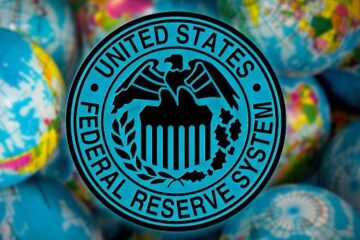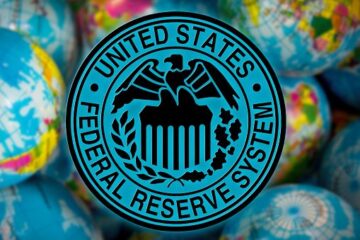How to crack down on decentralized systems thus far has mystified regulators.
As the reverberations caused by Russia’s invasion of Ukraine have spread, the world’s crackdown on Russia’s elite has gotten stricter and more specific.
The European Union, the United Kingdom and the United States have all issued gradually harsher sanctions on both individuals and the institutions they represent, from banks that only weeks ago were major players in the global financial system, to the armies they lead.
But it is becoming increasingly clear that the sanctions that have been put in place — primarily on banking practices, freezing assets and limiting travel — have yet to touch some of Russia’s wealthiest and most involved powerbrokers.
While that certainly is not all a function of the way currencies and financial institutions have changed in the last decade, at least a portion of it has.
The biggest difference is that traditional finance is centralized, and crypto is designed to be decentralized.
Backers of bitcoin and other altcoins often refer to it as “the people’s money,” because in theory they were created to be used for the common good and outside of traditional banking practices, which exist to make the institutions and their shareholders money.
Wondering who made the list of Russians hit with sanctions? TheStreet has you covered.
Kaliva / Shutterstock
A System Created to Be Anonymous
But how to crack down on systems that thus far have mystified regulators is at the very least, for right, leaving international leaders scratching their heads.
We are talking, of course, about the great crypto revolution currently roiling markets and sparking change in equal measures of triumph and terror.
“The whole point of cryptocurrencies is that the ownership of them is anonymous,” Masheck said. “While it is true that converting U.S. dollars to bitcoins on an exchange would be a tracked interaction, passing those bitcoins to someone else is not.”
Crypto creators around the world designed the system that way, experts say, precisely because they wanted to create a parallel financial system that can keep assets safe and even hidden during the most volatile global market turbulence.
“Again, the simplest example would be to think of it like cash. When you withdraw cash from a bank, there is a transaction that the government can see,” Masheck said.
“When you spend that cash and give it to someone else in exchange for a good or service, there is no trackable transaction. The new owner has the cash and can now do what they want with it.”
Wondering what exactly an oligarch is? We can help you with that, too.
Crypto Was Just Becoming Legit, So What Now?
Michael Parker, head of the anti-money-laundering and sanctions practice at Washington law firm Ferrari & Associate, told TheStreet that crypto providers have been trying to showcase their compliance readiness for a while now, and this opportunity is no different.
“The U.S. crypto industry understands that it is incumbent on the service providers surrounding crypto,” Parker said.
You can read all about how that process works right here.
That includes making sure that things like businesses that “on-ramp and off-ramp crypto into fiat currency” and centralized exchanges are within the letter of the law and complying with the rules as they currently stand — or risk losing their newly burgeoning reputation for a safe place to put assets.
“Indeed, the U.S. crypto industry has grown up alongside this technology and there’s a general culture of compliance with U.S. crypto service providers,” Parker, a former federal prosecutor, said.
He stressed that “just because someone is sending crypto instead of fiat currency,” it doesn’t mean that sanction disappear or are no longer applicable.
“It’s still a violation of sanctions law if that crypto is sent to a designated actor or involves an interest in blocked property, pursuant to a sanctions program, Parker said. “The methods of detection, prevention, and reporting are effectively the same, it’s just involving a ‘new’ technology and industry.”
Coins Can Still Be Accessed Even With Sanctions
As of this writing, cryptocurrencies are still unsanctioned.
While the United States has experimented with ways to sanction the trading of alt coins via its sanctions on North Korea and Iran, it has not yet set in place a specific set of sanctions designed to curb the usage of cryptocurrency.
That reprieve may be brief — the Treasury Department is reportedly finalizing its guidelines on how to crack down on assets held as cryptocurrency. But for now, it is still perfectly legal for sanctioned listees to access their bitcoin and other alt coins.
“Cryptocurrency exchanges exist around the world. Some are more reputable than others,” Masheck says.
“As long as you can open an account in a country that is not sanctioning certain businesses, you can access and trade cryptocurrencies,” he said. “
Sanctions are simply laws that would punish and inflict steep fines on businesses that interact with certain entities. It doesn’t mean a business can’t operate or transact somewhere in the world.”
Wolfgang Schwan/Anadolu Agency via Getty Images
For Now, We Wait
The reality of freezing every single Russian asset and keeping them away from powerbrokers involved in the invasion of Ukraine is imperfect at best, right now.
But because Russia was the aggressor in this particular war, it has the advantage of having had time to plan for a variety of scenarios of the financial costs of invading a neighboring country while taking on NATO.
“Russia has had a lot of time to think about this specific consequence,” Mich Parker told the New York Times.“It would be naïve to think that they haven’t gamed out exactly this scenario.”


